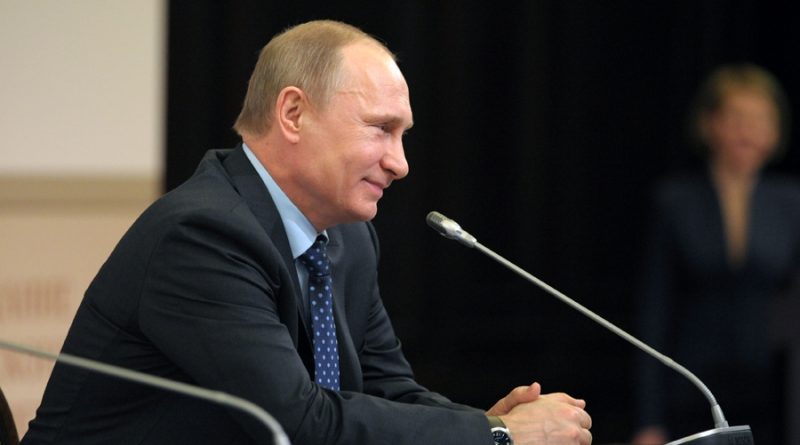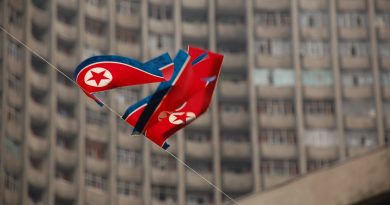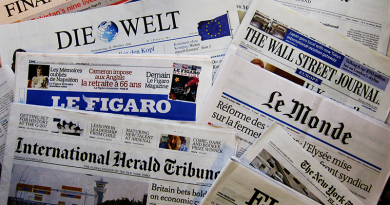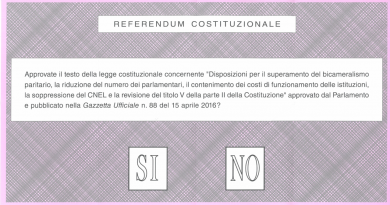Worldwide Political Leaders’ Reactions to Trump’s Victory
Here is a brief recap of how political leaders across the globe reacted to Donald Trump’s electoral victory on November 8.
Portugal (Marcelo Rebelo de Sousa and António Costa)
The Portuguese leaders congratulated Donald Trump on his victory, and emphasized the excellent friendship between the two countries, who share a long historical relationship, common interests, and large communities of Portuguese and Portuguese descent people.
Russia (Vladimir Putin)
Vladimir Putin rejoiced with the appointment of Donald Trump, and assured that his country is prepared and eager to rebuild its relationship with the United States, in the interest both the American and Russian people.
China (Xi Jinping)
According to the official Xinhua News Agency, Chinese President Xi Jinping sent a telegram to salute the American President-elect, and highlighted the two countries’ responsibility to maintain “world peace and stability”, and to “boost global development and prosperity”. The President also stated that he finds the relationship between the two countries extremely valuable, and that he looks forward to working with Mr. Trump in strengthening US-China cooperation.
France (François Hollande)
French President Hollande, on the other hand, declared that Trump’s win “opens a period of uncertainty”, offering Donald Trump just a few congratulatory words in an initial reaction. On a letter later written to the President-elect, however, Hollande emphasized the importance of immediate talks regarding terrorism, the Middle East, economic ties, and the future of the planet
United Kingdom (Theresa May)
Britain’s Prime Minister Theresa May, who previously criticized the American President-elect, extended her felicitations to the Republican leader, guaranteed that the UK and the US will remain “strong and close partners”, and showed her eagerness to start working with Mr. Trump as soon as possible.
Germany (Angela Merkel)
The German Chancellor offered her congratulations to the winner of the US presidential elections, which she watched with ‘trepidation’. She also expressed wishes of close cooperation with the President-elect, as long as he pledges to defend equal rights.
Italy (Matteo Renzi)
At the start of a speech in Rome, the Italian Prime-Minister, one of the few world leaders to publicly endorse Hillary Clinton, said that he wished Donald Trump well and that “the Italo-American friendship was strong”.
Spain (Mariano Rajoy)
The recently re-elected Spanish Prime Minister Mariano Rajoy took to twitter to salute Mr. Trump on his electoral results, and vowed to continue to work with this ‘indispensable’ ally on strengthening the relationship between the two countries.
Mexico (Enrique Peña Nieto)
The President of Mexico, heavily criticized in local media for meeting with Mr. Trump last August, has announced that he spoke with Mr. Trump, having congratulated him on his win. Peña Nieto also claimed to have arranged another gathering before the Republican is swore in, and added that they debated a new work agenda, which included security matters.
Canada (Justin Trudeau)
In an annual youth empowerment event in Ottawa, Justin Trudeau transmitted to Donald Trump his felicitations on the US presidential election results, and described the relationship between the two countries as a ‘model’ for the world. He also promised to work with Mr. Trump to increase trade and security.
Turkey (Recep Tayyip Erdoğan)
According to Turkish presidential sources, Erdoğan phoned the American President-elect to extend his felicitations, and they discussed tighter relations and stronger cooperation in the fight against terrorism. Like Mariano Rajoy, the President of Turkey would later use twitter to share his support for Donald Trump.
NATO (Jens Stoltenberg)
In a press release, NATO Secretary-General Jens Stoltenberg congratulated Mr. Trump, and explained that America’s leadership, in this “challenging new security environment”, was as important as ever. Lastly, he welcomed the President-elect to the 2017 NATO Summit in Brussels.
EU (Donald Tusk, Jean-Claude Juncker, and Federica Mogherini)
In a joint letter, EU Council President Tusk and European Commission President Juncker saluted the 45th US President-to-be, and emphasized the values shared by the EU with the country, the importance of a strong transatlantic and strategic partnership, and invited Mr. Trump to visit Europe for an EU-US Summit.
EU foreign policy chief Federica Mogherini, on the other hand, took to twitter to highlight the fact that “EU-US ties are deeper than any change in politics”, and therefore they would continue to work together. However, as she added in a later CNN interview, the US does not determine EU foreign policy.
Russian President Vladimir Putin, Photo by Kremlin
![]() This work is licensed under a Creative Commons Attribution-NonCommercial-ShareAlike 4.0 International License.
This work is licensed under a Creative Commons Attribution-NonCommercial-ShareAlike 4.0 International License.




